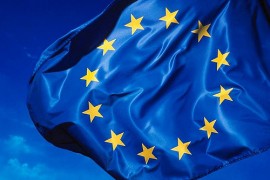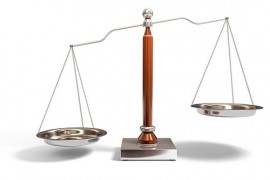One interview sequence is rarely definitive proof of BBC bias. But a recent Today feature about the private member’s bill to commit to a referendum about membership of the EU comes very close to it – and it has now become the subject of a complaint to the BBC.
The interview sequence in question, broadcast on January 10, also underlines vividly what Newswatch surveys repeatedly show: that editors and interviewers give most space to those who want closer ties to the EU and sideline, limit or disrespect the arguments of those who do not.
Update: Lord Pearson of Rannoch and the MPs Philip Hollobone (Conservative) and Kate Hoey (Labour), have lodged a formal complaint about the feature on the ground that it was ‘a striking piece of BBC bias at a crucial time in the debate about the EU referendum’. The full correspondence on the matter can be seen here.
At 8.10am, in the front page slot, Evan Davis interviewed Michael Dobbs – the Conservative peer guiding the private member’s bill through the House of Lords – and Peter Mandelson, the former Labour minister and spin doctor who, it transpires, believes that a referendum should not be held because it would be ‘a lottery’.
Both men were actually on air for about the same time. But the way they were treated was emphatically noteven-handed. One crude measure is that Lord Dobbs had just 250 words to put his case across, while Lord Mandelson had more than 750 to elaborate his anti-bill arguments. The difference in treatment went much deeper, in that Evan Davis allowed in some depth (without interruption) Lord Mandelson’s attack, both on the need for the bill and the reasons why advocates were supporting it.
But I leave you to decide for yourself why – the full transcript is below.
What leaps out is that Lord Dobbs was asked primarily about how he would vote over the bill and whether the measure was a waste of time on the ground that it would be the next Parliament that actually decided the matter. In consequence, he had only two short opportunities to explain why he was introducing the legislation.
After a brief initial question to Lord Dobbs about why he supported the bill, Mr. Davis quickly moved on to what was clearly his main focus – how Lord Dobbs would vote and whether the measure was a waste of time because it would be the next Parliament that determined whether the referendum would actually be held. Lord Dobbs managed to deliver only 250 words (about 95 seconds) about the reasoning (essentially that it was about giving people choice) behind the bill. His argument was heavily curtailed by Evan Davis’s interventions in which he put instead the points about how Lord Dobbs would vote.
By contrast, it was clear from the start that Evan Davis wanted Lord Mandelson to have space to put across his detailed reasoning why the bill was essentially ill-conceived, was Political grandstanding, and was a waste of Parliamentary time. In the end, he was afforded the opportunity to deliver three lengthy sequences amounting to more than 750 words in which he advanced his case that the bill was primarily designed to try defuse the UKIP threat.
On the face of it, elements Mr Davis’s approach to Lord Mandelson were adversarial, in that he suggested that the pro-EU case was not being put very well. But on closer analysis, his questioning actually delivered a framework for Lord Mandelson to plough on expansively with his substantive points. It seems clear, too, that Mr Davis had no desire or intention to interrupt in any significant way. For example, when Lord Mandelson, made the sweeping and politically partisan claim that the bill was grandstanding and playing to the UKIP gallery, why did not Mr Davis intervene to suggest that UKIP actually had popular support and this might instead be seen as something that aimed to give British people (as Lord Dobbs had suggested) a definite opportunity to express their opinions?
This all adds up to a striking example of BBC bias at a crucial moment in the debate about a referendum. And it fits closely with the longer-term and more detailed analysis by Newswatch, which shows consistently that those in favour of the EU almost invariably get the most space and most favourable framework to advance their views.
Full radio transcript here
Photo by Nicholas Smale 





